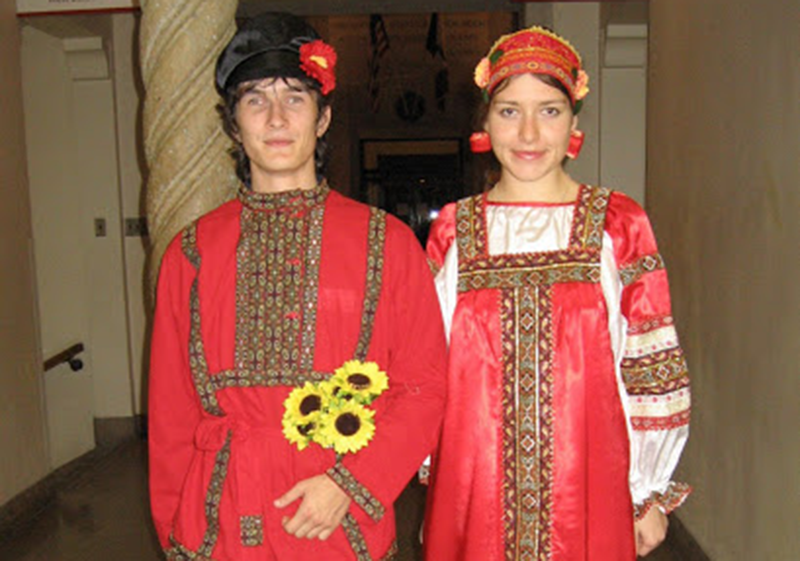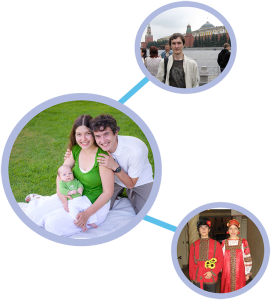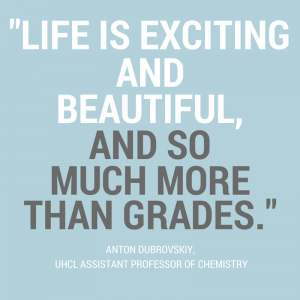
Diversity creates brainpower

UHCL strives to fulfill its mission to “serve a diverse student body” by building a campus community that includes a diversified range of faculty, staff and students.
Research studying the effects of diversity on complex thinking in colleges and universities shows that students who are exposed to a wide variety of cultural backgrounds exhibit positive academic and social growth.
Sandy Samaan, biology major, attests to her positive learning experiences with professors who migrated from other countries and that their native accents helps them to speak with cadence.
“They not only teach you the material, but they bring their own little sense of culture,” Samaan said. “It’s interesting to see their different teaching methods and how they’re influenced by their home country.”
Russian-born Anton Dubrovskiy, assistant professor of chemistry, teaches Samaan’s freshman science class, General Chemistry, this semester.
“For my own personal experience, foreign teachers do have more enthusiasm,” Samaan said. “Dr. Dubrovskiy has such passion for chemistry, which makes the subject more interesting, and if he’s enthusiastic, then you become more enthusiastic as well.”
This is Dubrovskiy’s first semester of teaching at UHCL. He first visited the U.S. from Russia in 2005 when he participated in Iowa State’s student exchange summer program where he worked in a chemistry lab developing novel synthetic organic transformations.
Dubrovskiy commented that he loves sharing his passion for chemistry with his students and hopes to guide them to a better understanding of it.
“The overwhelming complexity of matter and its interconversions, be it a combustion reaction that puts our cars into motion or the pharmaceutical properties of aspirin, can be explained using only a handful of basic chemistry principles, many of which we will learn in our freshman chemistry course,” Dubrovskiy said. “Chemistry helps us to understand and appreciate life – aren’t you curious about it?”
Raised in Moscow, Dubrovskiy talked about his experiences upon coming to America and the pursuit of scientific knowledge at UHCL.
“What I like about American culture is that you are a nation of hope and progress,” Dubrovskiy said. “You invest in science and invite people from other nations to join you in this process. Of course, in reality it’s a lot more complicated: problems with funding, a lot of distractions in today’s students’ heads, etc. But this is why we are here; UHCL faculty gives its best to motivate students to learn in the classroom and make scientific discoveries in research labs.”
Dubrovskiy, who worked at the California Institute of Technology prior to accepting his position at UHCL, admitted that at times there is a disconnect between his students’ potential and their commitment.
“In Caltech they have very talented, bright and determined students; they don’t need my ‘help’,” Dubrovskiy said. “At UHCL we have talented and bright students – but the ‘determined’ part for some of the undergraduate students would need improvement. My goal is to make the people in my class look at the world differently and to help them fall in love with chemistry and science in general.”
Dubrovskiy pointed out that many students are much more interested in their grades than in the subject itself and do not have a vision for their life after college.
 “Life is exciting and beautiful, and so much more than grades,” Dubrovskiy said. “A lot of students are focused on their grades – they forget the bigger picture, look at the trees but forget about the forest,” Dubrovskiy said. “Love learning, have passion for life, develop a genuine interest in the subject, and you will know, not just remember, your course material for the rest of your life. The A+ grades will come naturally, as a result of your interest in the subject, but do not make them your utmost goal.”
“Life is exciting and beautiful, and so much more than grades,” Dubrovskiy said. “A lot of students are focused on their grades – they forget the bigger picture, look at the trees but forget about the forest,” Dubrovskiy said. “Love learning, have passion for life, develop a genuine interest in the subject, and you will know, not just remember, your course material for the rest of your life. The A+ grades will come naturally, as a result of your interest in the subject, but do not make them your utmost goal.”
Colleague Larry Rohde, associate professor of biology and biotechnology and the Chair of the Natural Science Division, agreed that Dubrovskiy’s constant, growing knowledge of American culture and all the new things he experiences gives people a better understanding of life in our society.
“Him being able to see things in a different way allows you to realize what we really have here in America,” Rohdes said. “And he comes from an environment where he had to work to get to where he is today. So I think he has a lot more understanding of students who struggle.”
Dubrovskiy mentions that some students feel a sense of entitlement when they enter college, believing good grades should be guaranteed and exams should be easy.
“Some students come to college with a quite unusual mentality,” Dubrovskiy said. “I attend lectures therefore I deserve my grades… I’m taking this course because it is a requirement…Really? I want to help my students – help transition from ‘cookbook mentality,’ solution manuals, and multiple – choice questions into real – life, more complicated, but also a lot more beautiful. Loving the world around you, loving others is the most beautiful thing you can do. Make an impact with the one life you have.”
